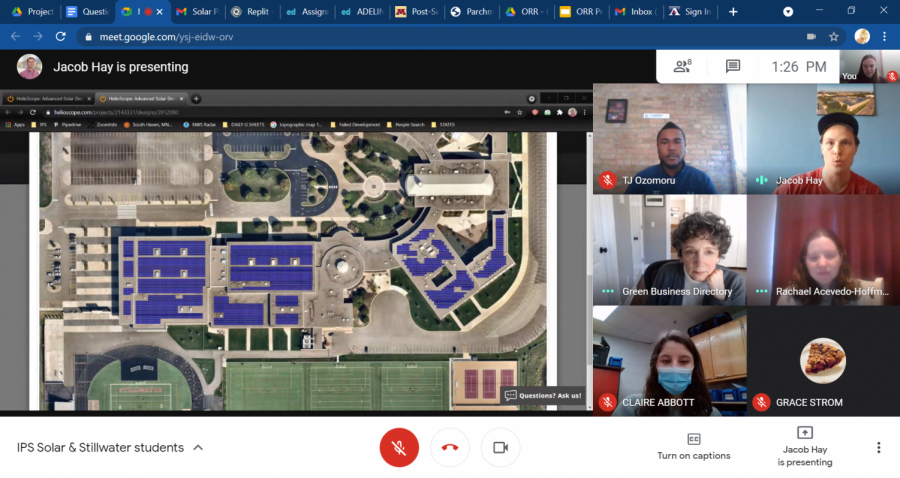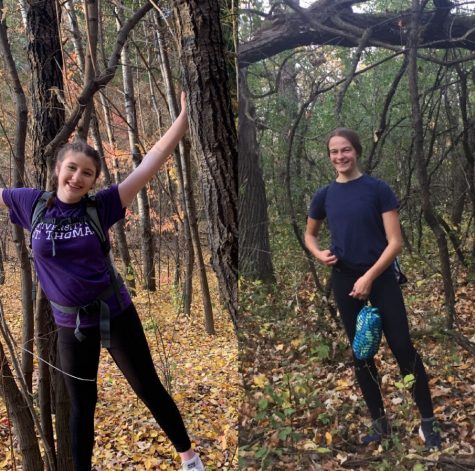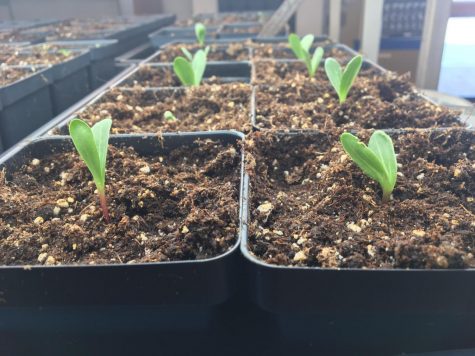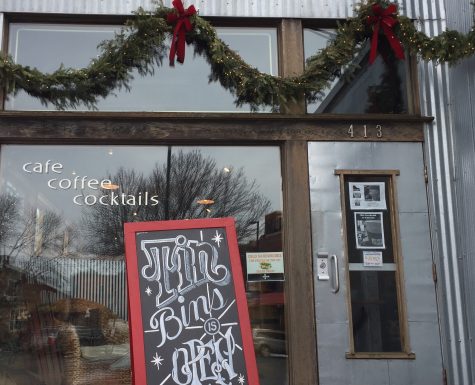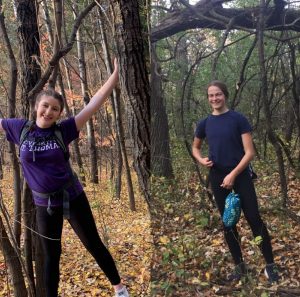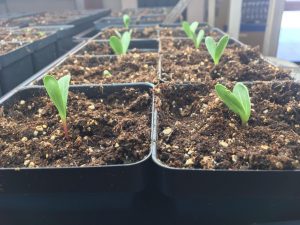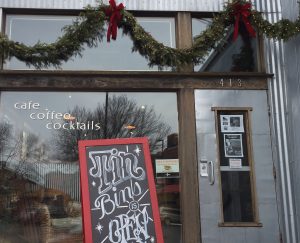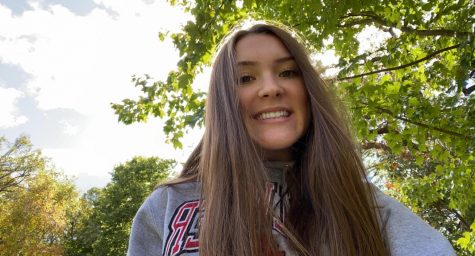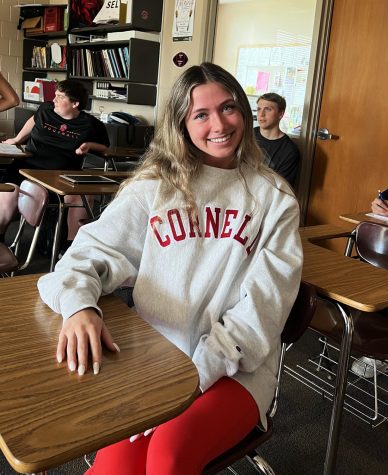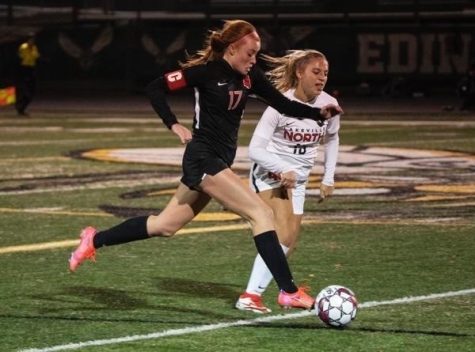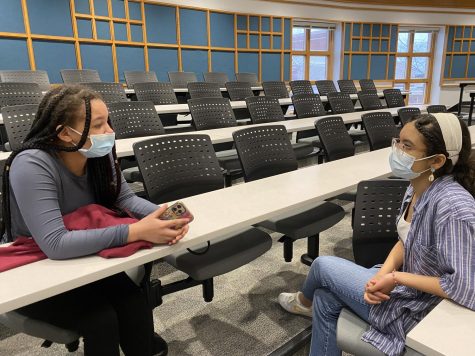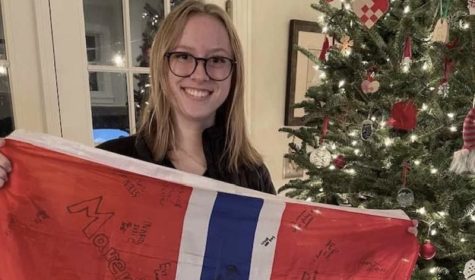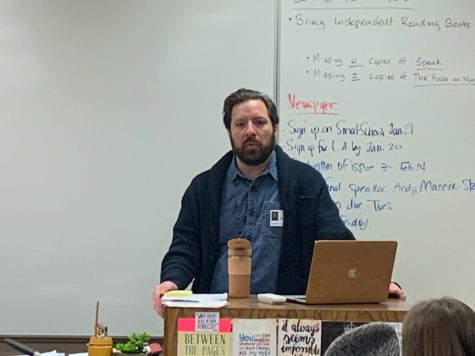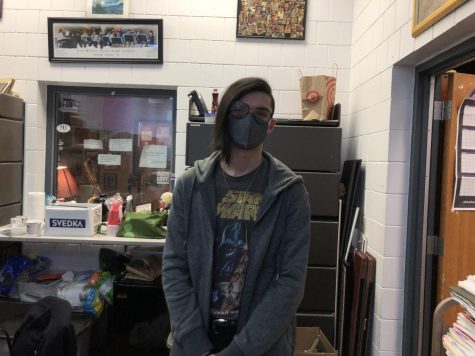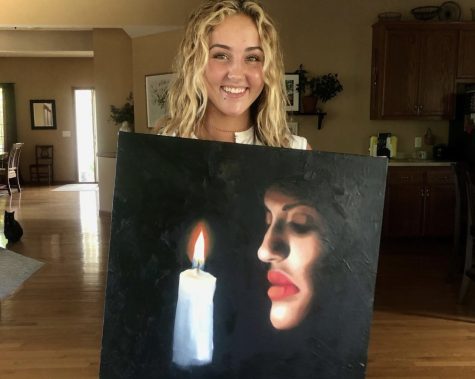Environmental Conservation Club works to get solar panels
Photo submitted by Addie Foote
IPS Solar company and the environmental conservation club are discussing the layout of the solar panels over Google Meets. The club is getting an idea of what the layout could look like if the School Board goes though with their proposal.
May 24, 2021
The Environmental Conservation Club is working to propose a solar panel project to the school board before the end of the year. They want the school to have their own solar panels to provide the building with clean energy. Their main goals are to conserve energy, use clean energy, save money, provide educational opportunities to students, and lower the school’s carbon footprint.
Juniors Clarie Abbott and Addie Foote participated in the Project Green Challenge where they were asked to live sustainability for 30 days. At the end the participants were encouraged to create a climate action project that would have a measurable impact on their community. After much consideration they decided on a solar panel project. The idea earned them second place internationally.
“The overarching idea of this project was to just make a change in our community, and improve it,” Abbott said. “For now we would like to get either a solar garden for the high school or panels on the roof.”
Using solar powered energy would provide many benefits that would help the school and the community. Money, however, is at the top of the list. There are two ways the school could go about this, one option is to buy the solar panels. The second is the Power Purchase Agreement (PPA). This would allow the school to lease panels and the solar company would take care of the manticance. In the first year the PPA would save the high school about $15,797, which is a 15 percent reduction.
Foote explained how solar panels are getting more accessible and “significantly cheaper than traditional methods” of energy. She said the school would be saving money from day one.
Many teachers think this would be a great opportunity for students to learn, especially in physics classes. They already study energy generation, so if the school were to get solar panels they could collect the real data and the students would have the opportunity to see how they work in real life.
“One of the things I like to try and do is make what we do in class as real world as possible,” physics teacher Doug Petty said. “Having real solar panels, easily accessible for students to see and collect data from would be a great opportunity to add it into the curriculum, instead of having to imagine what a solar field looks like. It would be a great way to go.’’
In one year solar panels could produce about 2,096,000 kilowatt-hours of electricity. This clean energy would save the environment CO2 emissions from 1,632, 912 pounds of burned coal which is equivalent to 320 cars on the road.
Abbott said it would make a big impact on the community by showing everyone how we could reduce our carbon footprint.
Yet, there are going to be people who are against this idea. Many wonder what would happen if it rains, snows, or even if there was a cloudy day. Nevertheless, solar panels are still effective and would produce enough energy to keep everything running.
“Solar is still an effective option, even where we live, and in our circumstances, so there isn’t a reason to be concerned about those things,” Foote added. “Technically sure, it would be more effective in Southern California, but it’s still a better option than what we are currently relying on, so it is something we should pursue.” It’s still a better option than what we are currently relying on, so it is something we should pursue — Addie Foote
Many different people in our school and community have shown their support for this project. However, there is always a chance the School Board could vote against this idea. If that happens the group would be devastated, but they still have many projects they are working on, such as making a pollinator garden, ending the use of herbicides and pesticides, hosting clean-up days, and turning plastic bags into mats for the homeless.
“I think the worst possible outcome is if we get rejected by the school board,” Abbott explained. “But there’s definitely alternative routes we could take to still make a lot of progress.”
“We wanted to start a project that would have a positive impact on our community,” Foote said. “To inspire and educate others is the main goal.”


